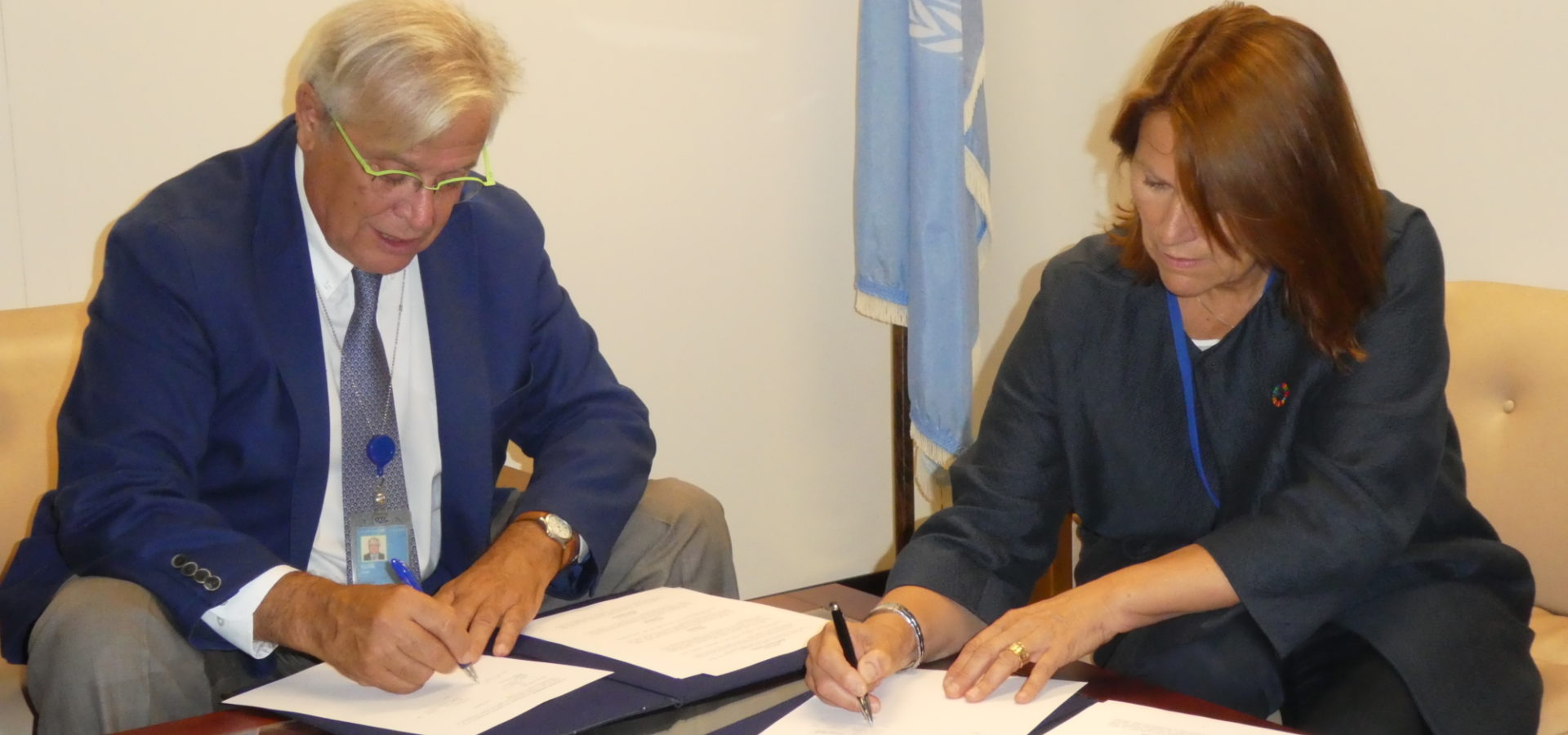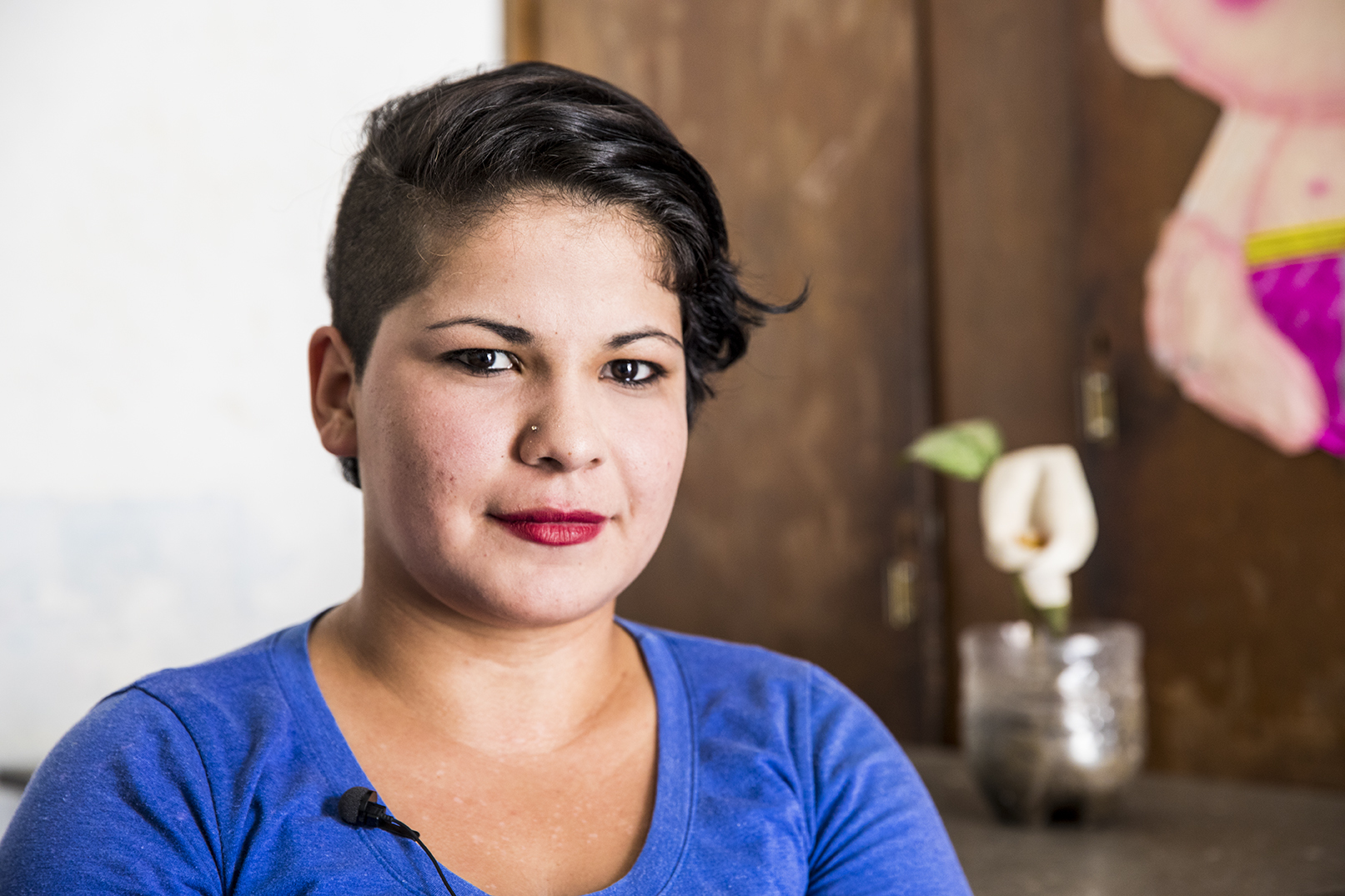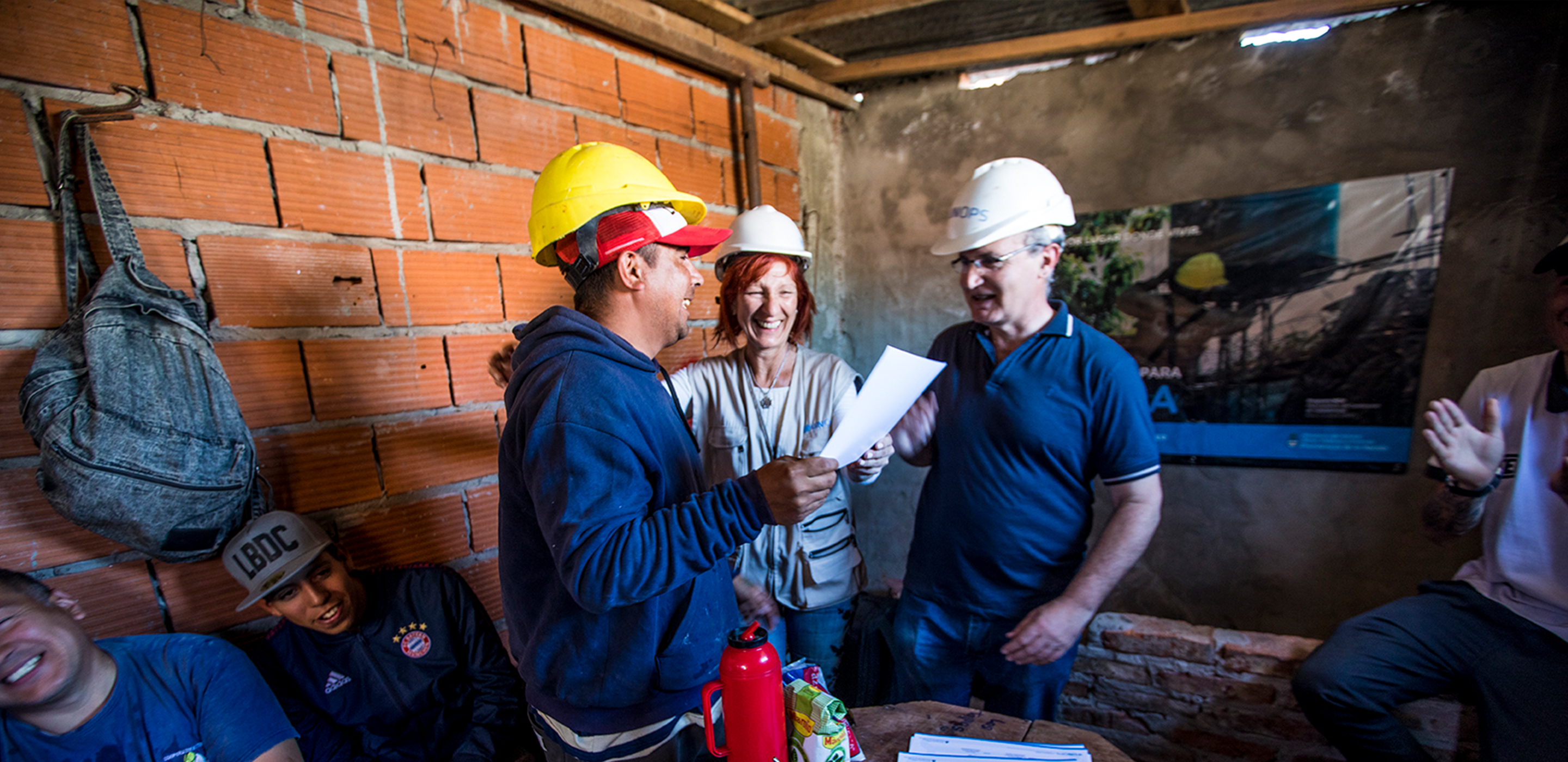The United Nations Office for Project Services (UNOPS)
UNOPS and UN-Habitat sign new partnership for sustainable urban development

The United Nations Human Settlements Programme (UN-Habitat) and UNOPS have launched a new partnership to respond to the unprecedented pace of urbanization where cities are now home to more than half of the global population.
The agreement followed the High-Level Meeting on the New Urban Agenda and UN-Habitat, hosted by the President of the General Assembly, which re-affirmed the role of sound urbanization in delivering sustainable development.
This marks the first dedicated collaboration between two UN bodies to support implementation of the UN's 20-year vision of a New Urban Agenda and the 2030 Agenda for Sustainable Development's call to: "Make cities and human settlements inclusive, safe, resilient, and sustainable".
"Our partnership with UNOPS is grounded in the recognition that, when well-planned and managed, urbanization is a powerful tool for economic development, social inclusion and environmental sustainability," said UN-Habitat's Executive Director Dr. Joan Clos.
"By aligning our mandates and core competencies, we stand a far greater chance of delivering a better future for all," said UNOPS Executive Director, Ms. Grete Faremo.
Together, UN-Habitat and UNOPS will coordinate approaches with donors and the private sector in support of implementing the New Urban Agenda.
She added: "Together, UN-Habitat and UNOPS will coordinate approaches with donors and the private sector in support of implementing the New Urban Agenda."
Under the new partnership, the two organizations will target cities with increasing levels of poverty and exclusion – including support to the 1 billion people who live in countries least able to achieve sustainable development, as well as urban dwellers in middle-income countries, which count three-quarters of the world's poor.
UNOPS and UN-Habitat will complement each other's areas of expertise in resilient infrastructure, sustainable urban planning and design, municipal finance and governance to combat urban poverty and inequality, and in helping cities face threats from conflict, climate change and natural hazards.
Today, about a third of the global urban population is estimated to live in slums and informal settlements, often without access to proper housing, infrastructure or services. Some 60 percent of the total 14.4 million refugees worldwide are thought to live in urban areas.
Cities are also at the forefront of climate change and have a critical role in ensuring a cleaner, healthier and safer environment for all. The 650 million urban dwellers expected to be living in delta and coastal areas by 2050 face serious risks from floods, water scarcity, and ecological and economic damage. These threats are no longer limited to the poorest countries. Poverty, exclusion and other barriers to peace and security affect all nations.











